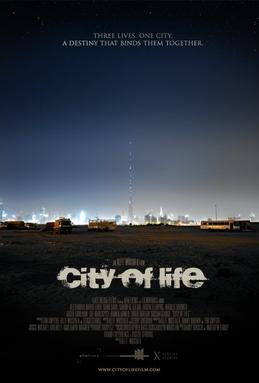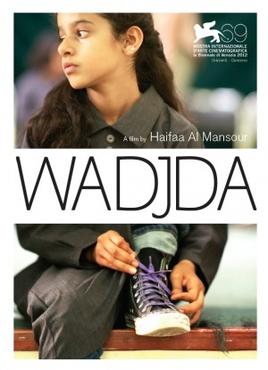We might not be Hollywood, but the Arab region's long history with movies and arts is one not to mess with.
It all started with the 1896 screening of the Lumière shorts in Alexandria. The production of the first Arab full-length silent movie in 1927 Egypt, Layla, would later ignite what would become a highly revered cinema industry.
Arab cinema has paved its own way in this field, adopting actors we now idolize and love.
If you're interested in learning more about Arab cinema, here is a small selection of must-see Arab movies produced in the last couple of years.
1. Fatat El Masnaa (Egypt)
Fatat El Masnaa, directed by the late auteur Mohamed Khan, is a heartfelt romance that tackles themes of class and gender in modern Cairo.
Hiyam, (Yasmine Raeis,) is a young factory worker who falls in love with the new factory supervisor, Salah (Hani Adel,) as she hopes their love can transcend societal boundaries.
Raeis won the best actress award at the Dubai International Film Festival (DIFF) for this role.
2. Decor (Egypt)
Decor is one of those complex yet plain storylines you get drawn to watch.
A bold combination between the past and the present, it merges classical vintage Egyptian cinema along with post-modern elements.
It stars Horeya Farghaly as Maha, a set designer working alongside her husband, Sherif (Khaled Abol Naga,) on their first commercial film.
Maha finds herself deepened in the project despite her disinterest in it. She travels to the film’s fictional universe where she's an unhappily married mother. As she slowly begins adapting to her new miserable life, Maha is abruptly sent back to designing the film set as if woken from a dream.
3. City of Life (UAE)
City of Life is the UAE's first full-length feature film directed by Emirati filmmaker, Ali Mostafa.
This multi-lingual film tells the story of three men's parallel lives residing in Dubai; a young Emirati facing an identity crisis, an Indian taxi driver who bears a resemblance to a famous Bollywood star, and a Romanian flight attendant searching for love.
This movie is shaped to show Dubai's real face, away from the polished image it's known for.
4. Wadjda (Saudi Arabia)
Wadjda, directed by Haifaa al-Mansour, is a film that is hailed for marking the birth of cinema in Saudi Arabia.
The movie tells the story of a 10-year-old girl who hopes to buy a green bicycle by winning a Koran-recitation competition at school. The film is set in the suburbs of Riyadh, where women are second class citizens and bike riding is considered a threat to a girl’s virtue.
Wadjda was selected as the Saudi Arabian entry for the Best Foreign Language Film at the Oscars in 2014, but was not nominated. It also received a nomination for Best Foreign Film at the 2014 British Academy of Film and Television Arts (BAFTA) awards.
5. Paradise Now (Palestine)
Hany Abu-Assad's Paradise Now offers a different look at suicide bombers in Palestine.
This Golden Globe winning film follows two childhood friends, Said and Khaled, who have been recruited for a suicide attack, but their mission falls apart as the film progresses.
6. Theeb (Jordan)
Naji Abu Nowar’s adventure film, Theeb, follows a young Bedouin boy through the wide open desert of Wadi Rum during World War One.
Theeb was the first Jordanian film to be nominated for the Best Foreign Language Film category at the Oscars in 2016.
7. W Halla' Lawen (Lebanon)
The list wouldn't be complete without a Nadine Labaki feature film.
W Halla' Lawen is a dramedy about a group of Christian and Muslim women trying to maintain peace in their faraway village as their men are enticed into a civil war of their own.
It is a powerful movie that highlights women's strength and perseverance.
8. Mahbas (Lebanon)
Sophie Boutros’s first feature film, Mahbas, delicately tackles Lebanese-Syrian prejudices.
It follows the story of a Lebanese mother, Therese (Julia Kassar,) - who bears a slight hatred towards Syrians ever since her brother was killed in a Syrian bombing 20 years ago.
Therese’s world turns upside down when her daughter Ghada (Serena Chami) comes back home to introduce Samer (Jaber Jokhadar,) her Syrian soon-to-be fiancé, to the family.
Therese masters all her strength to ruin her daughter’s marriage all through a comedic framework.






